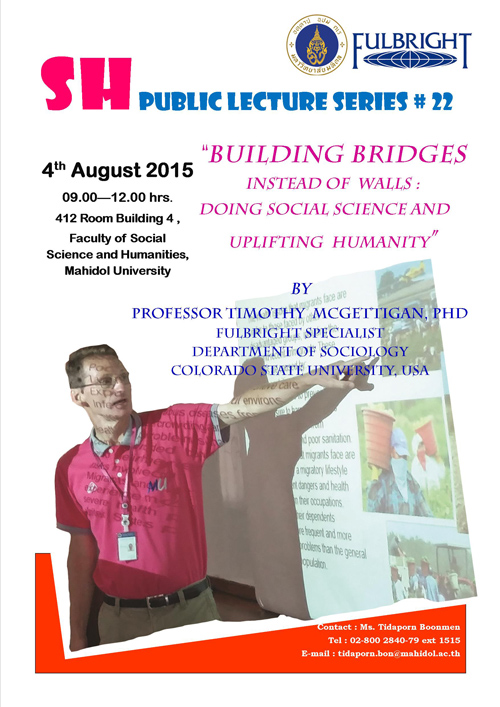Redefining reality is a process through which individuals can challenge inadequate paradigms through a combination of astute observation and an ingenious capacity for innovative cognition (i.e., agency). The notion of redefinable reality posits, in agreement with Popper's realist philosophy, that there is a universe "out there" that exists independently of human cognition (Popper, 1983). As such, I argue that universal Truth does exist, but such Truth is not (nor will it ever be) contained within extant scientific paradigms (McGettigan, 2011). Rather, The Truth extends infinitely into the unlocked mysteries of the expanding universe. In other words, reality is what it is: an asteroid is an asteroid is an asteroid, etc... Truth is an intrinsic, inseparable feature of phenomena as they exist independently of human perception. Lies and distortions come into existence via humanity's vast capacity for ignorance: humans view the illimitable universe through awed and flawed psyches. Although admirable in many ways, the human grasp of infinite mysteries remains woefully incomplete. Nevertheless, the process of redefining reality permits limited human psyches to transcend the limitations of inadequate paradigms in pursuit of a grander vision of Truth.
Redefining reality generally begins when individuals notice a disjuncture between observable facts and established modes of explanation, e.g., a democratic system that is supposed to serve the people, but that instead caters to the whims of the powerful. Due to their devotion to established modes of thought, some observers might ignore anomalies, or contrive a convenient explanation that sustains their belief in what is already known, e.g., democracy in the United States may be imperfect, but it distributes power pluralistically through a convoluted representational system. Alternately, more independent thinkers might treat such a dilemma as an opportunity to transcend the socially-imposed barriers that constrain their understanding of observable reality.
The process of transcending socially imposed cognitive barriers often begins with a creative observation (e.g., "Hey! Why don't politicians ever follow through on their campaign promises?"). In some cases, individuals who are determined to make sense of the anomaly in question might follow up their observations by developing an individual-level intellectual challenge to established modes of understanding (i.e., it appears as though the United States democratic system is primarily designed to serve the interests of power-brokers). Such acts of intellectual rebellion tend to further erode the foundations of conventional thinking (i.e., "Based upon what I have observed, I no longer believe democracy in the United States serves the will of the people."). Finally, the culmination of the redefinition of reality process involves constructing an entirely new explanation that simultaneously explodes existing ideological boundaries while also advancing a more adequate description of the phenomena in question, i.e., the United States political system masquerades as a democracy, while functioning like an elite-centered oligarchy.
Thus, as the foregoing example illustrates, individuals occasionally demonstrate the requisite mental apparatus to make note of anomalies, develop creative new explanations for mysterious phenomena, and then overcome manifestations of social power that delimit their thought and action. Therefore, the thoughts and behaviors of individual social actors are not entirely determined by the invisible influences of social coercion. Instead, sometimes agents can creatively counteract the distorting influences of social coercion and, in so doing, generate moments of truth.
A moment of truth is an experience wherein individuals, via the process of redefining reality, are transported from an inadequate version of reality to a more satisfactory paradigm. These experiences may be considered relatively truthful in that they are generated through a process whereby agents systematically counteract the influences of invisible social power over their definitions of reality. Thus, Mills (1956) argues that people who confine their analysis of the US political system to the realm of the observable (i.e., the words and deeds of elected politicians), cannot help but fall prey to artfully calculated illusions. From Mills' perspective, the observable activities of political actors in the United States are designed to provide a convincing impression that politics-as-usual lives up to the ideals of democracy. Yet, Mills argues that appearances are deceiving. While political representatives go through the motions of faithfully serving their constituents, shadowy operators work behind the scenes to ensure that politics-as-usual serves the interests not of the majority, but of a privileged minority of power elites. Consequently, the truth is not defined by facts alone, rather the truth can only emerge as a result of a deeper investigation into the manner in which perception is often cunningly distorted by the interventions of social power. Therefore, it is in the process of counteracting the distorting influences of social power that it becomes possible for agents to experience moments of truth.
References
McGettigan, Timothy, 2011.
Good Science: The Pursuit of Truth and the Evolution of Reality. Lanham, MD: Lexington Books.
Mills, C. Wright.
The Power Elite . Oxford: Oxford University Press, 1956.
Popper, Karl, 1983. Realism and the Aim of Science. Totowa, NJ: Rowman and Littlefield.





